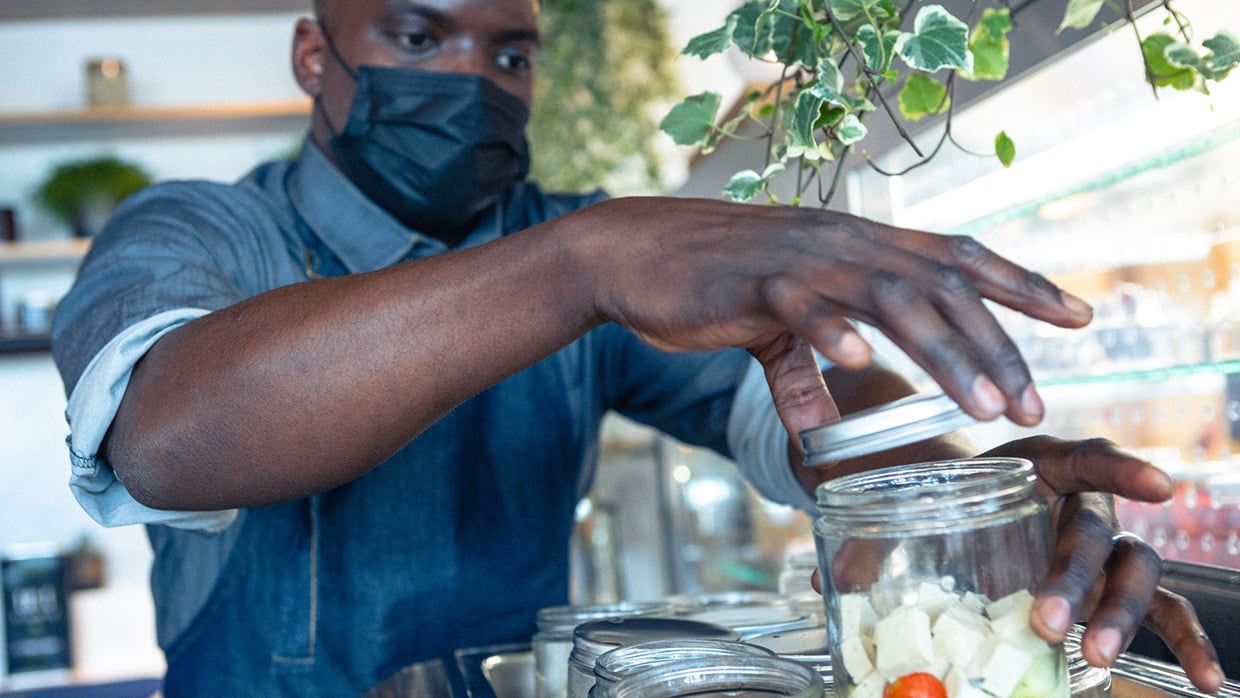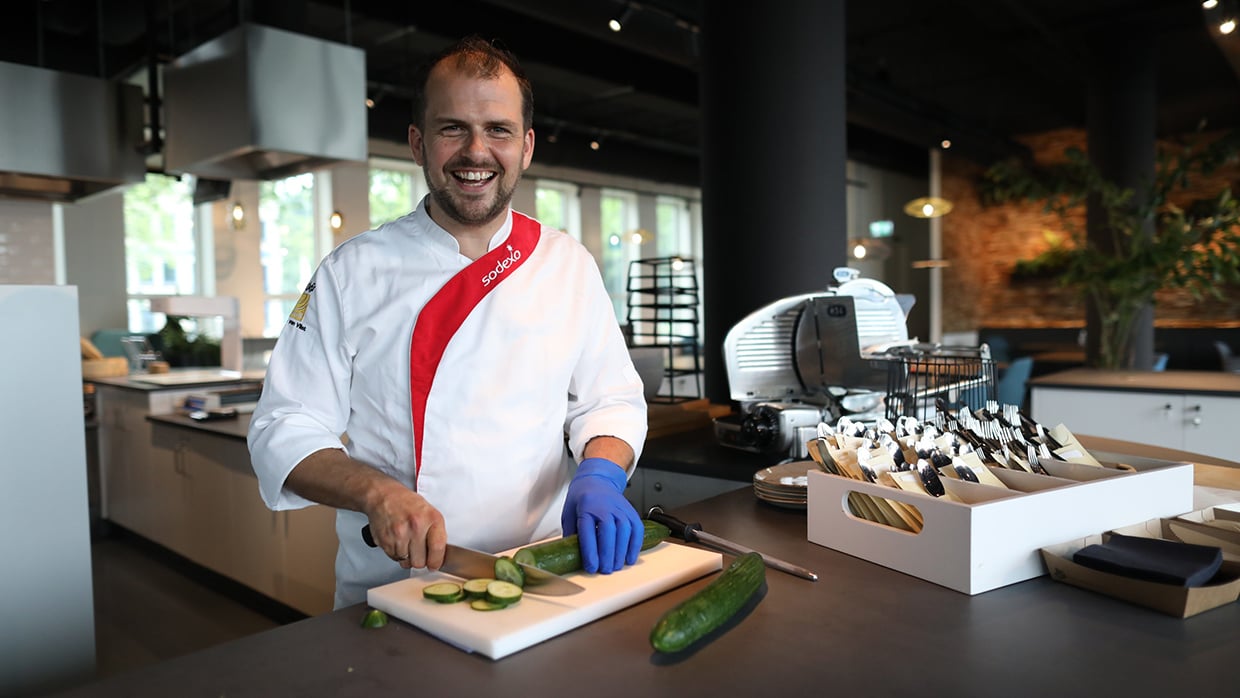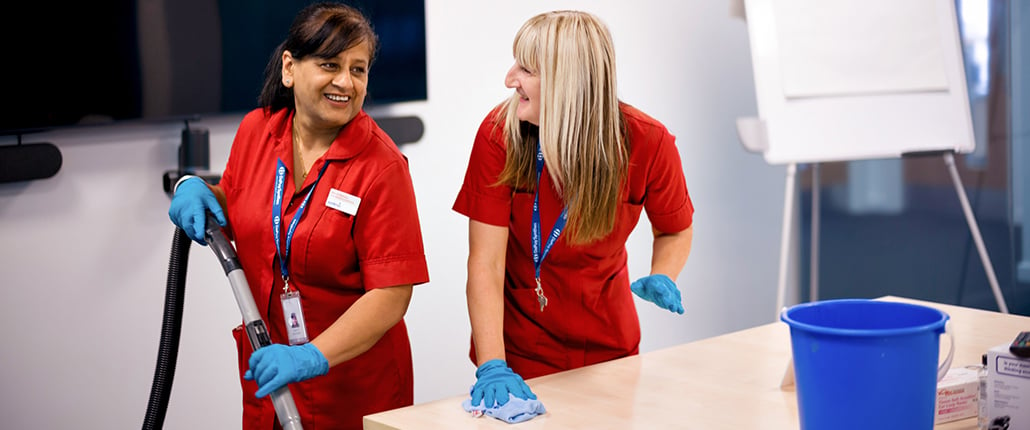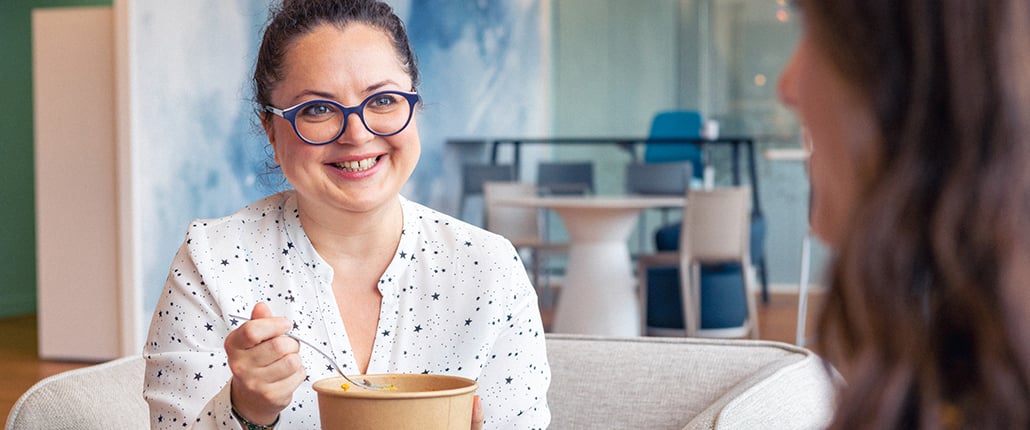Saving resources and reducing waste

Today, the loss of biodiversity, the scarcity of resources, the increase in pollution and greenhouse gas emissions reveal the huge problems with the principle of "extract, manufacture, consume, throw away".
As a responsible food services company, we have a major role to play to conserve natural resources and limit the production of waste. We are committed following the principles of circular economy through sustainable sourcing, responsible consumption and recycling.
We are saving resources through four key actions: preventing food waste, preserving water, phasing out plastic single use products & packaging and through the way we work with our clients and partners.

Food waste prevention
Food waste accounts for 10% of the world's greenhouse gas emissions. Whether it’s during the ordering, storage, preparation, or serving process, we work with our teams, clients, and suppliers to reduce waste at all our sites.
How are we reducing our food waste?
WasteWatch:
WasteWatch is our effective food waste prevention solution. The program makes it easy for our teams to collect and analyze data on food waste in our restaurants, helping us to reduce food waste by 50% by 2025.
We have committed to accelerating the deployment of WasteWatch to reach 85% of our food service sites by 2025, from 45.6% today (based on raw material cost). Since the beginning of the program, 3,851 of our sites in 37 countries have deployed WasteWatch and 1,873 sites are actively measuring food waste reduction against their baseline.
In addition to this program, we work closely with the WWF to further reduce food waste and preserve more resources.
We are also proud to be the first organization in our sector to link our financing to our actions to combat food waste.
Reducing waste throughout the supply chain:
We are also working with partners and suppliers to prevent food waste. For example, in Australia, we have developed a partnership with the anti-food-waste app Yume. We committed to purchasing surplus food that would otherwise be thrown out, significantly reducing our water use and CO2 emissions. In the UK, our ‘Wasteful to Tasteful’ initiative helps to reduce the volume of surplus and misshapen fruit and vegetables being thrown away or left to rot. This initiative was launched in 2018 and so far has saved 156,235kg of fruit and veg from going to landfill across 289 of our sites.
Collaborating with partners:
We participate in numerous initiatives such as the Champions 12.3 coalition, ReFED, WRAP, WRI, the Consumer Goods Forum, REFRESH, and Food Service Europe. We are also a founding member of the International Food Waste Coalition (IFWC), which fights food waste through its collaborative "farm-to-plate" approach.
We get everyone involved in reducing waste, from employees to clients and consumers through our WasteLESS week awareness campaigns. We donate surplus food to NGOs and associations through Stop Hunger, our unique philanthropic cause.
Finally, we work together with organizations such as the French anti-waste startup Phenix, and the conversion of organic waste into compost and biogas with the Suez Group as well as composting specialists such as Les Alchimistes in France to ensure we are doing absolutely everything we can to valorize our waste.

Preserving water resources
We are aware of our reliance upon water, directly due to the use of our employees or indirectly due to the food production need that we buy. In this context, we fight against food waste and encourage sustainable food choices. We also made available water management assessment and improvement tools at more than 10,000 of our sites to help preserving water resources.
For example, at the Planta Colina food production site in Chile, we have invested in a water recycling solution that saves 250 m3 of water per month during cooking.

Reducing single use plastic products
Pollution caused by plastic packaging is negatively affecting the health of people and the planet. For many years, we have been focused on building a more circular business model, with a particular emphasis on food service disposables.
Our strategy is designed around 3 pillars: preventing the use of disposables, shifting to reusables, and ensuring the remaining disposables come from a sustainable range.
To support this strategy, we developed a sourcing guide. This guide aims to reduce the environmental impacts of our packaging while ensuring regulatory compliance, consumer safety and operational requirements. We also signed a Manifesto calling on United Nation states to commit to a global treaty to combat plastic pollution.
.jpg?h=503&iar=0&w=503)
Our Corporate Responsibility Report
Today, choosing responsible growth means pursuing and continuing to make the best possible choices and focusing on health, safety and respect for the environment.